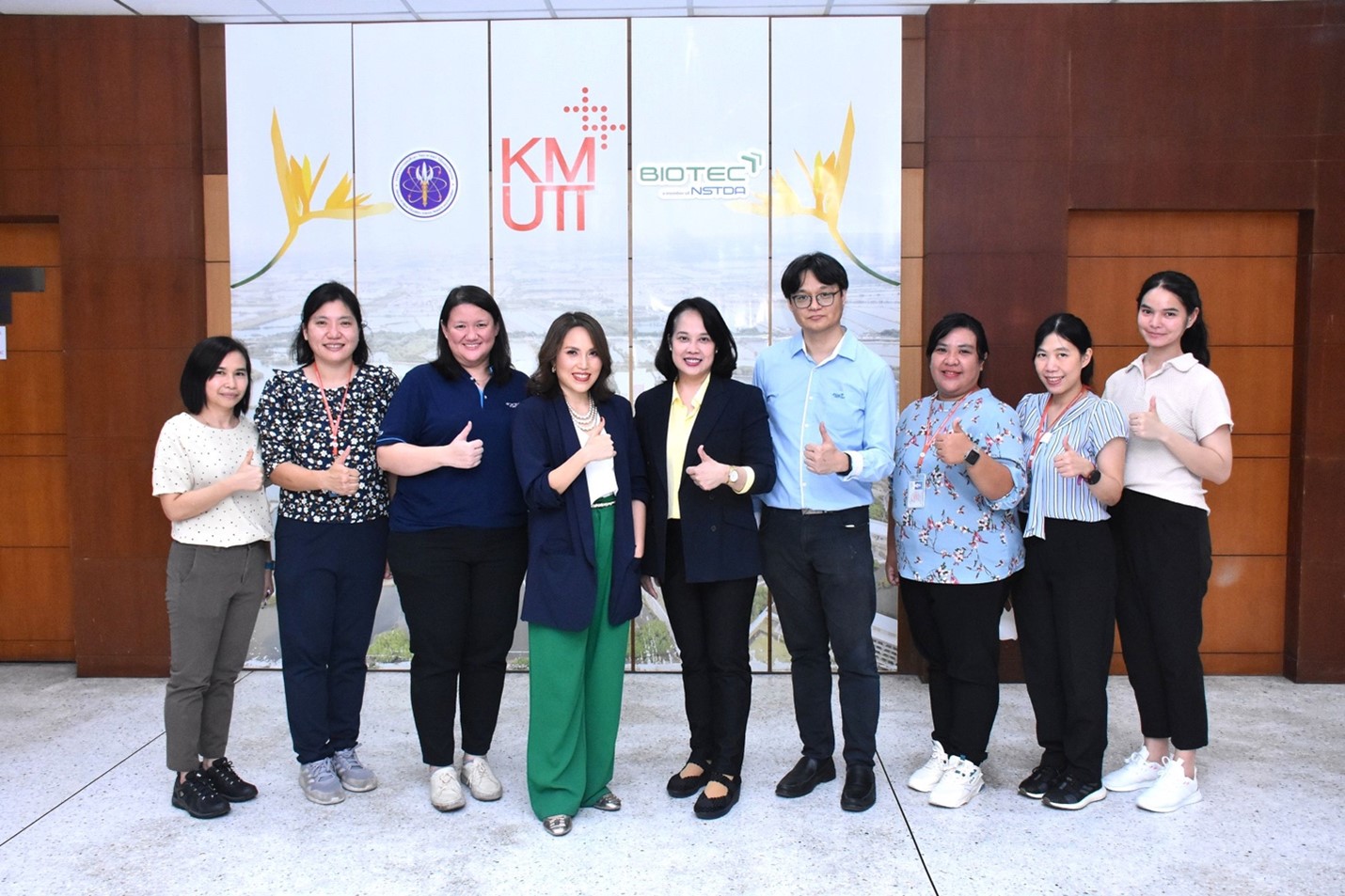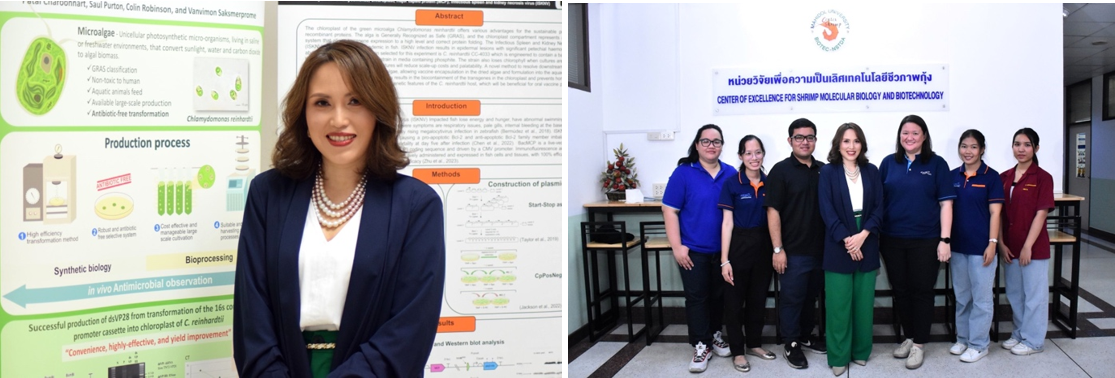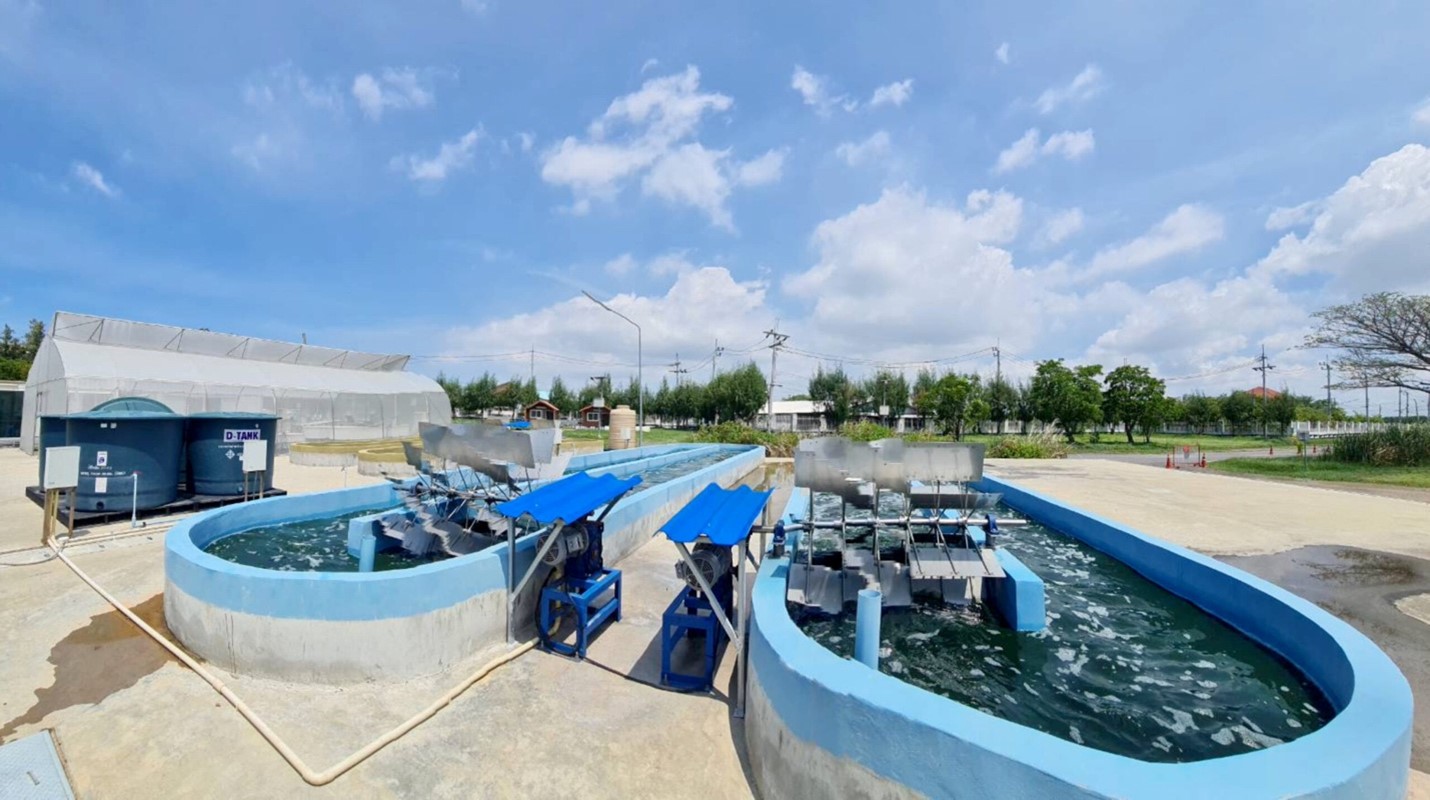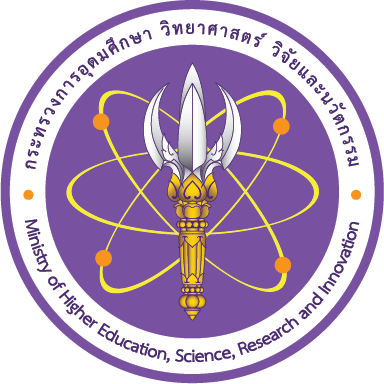For over two decades, BIOTEC-NSTDA has been actively involved in algal research and development, aiming to promote sustainability in the Thai aquaculture industry. This work is primarily carried out by two research teams: the Fish and Shrimp Molecular Biology and Biotechnology Research Team, as well as the Biosciences and Systems Biology Research Team.

The Fish and Shrimp Molecular Biology and Biotechnology Research Team has established a longstanding collaboration with the Faculty of Science at Mahidol University. Dr. Vanvimon Saksmerprome, the team leader, highlighted the achievements of BIOTEC and Mahidol University in generating new knowledge and innovative solutions to support Thailand's aquaculture industry, particularly the shrimp industry. Their collaboration has led to the creation of Centex Shrimp, which focuses on studying shrimp diseases. The team has developed a novel platform for bioengineering microalgae to produce antiviral double-stranded RNA (dsRNA). This dsRNA serves as a feed supplement for shrimp, providing viral protection. The technology has proven to be effective in reducing the mortality rate caused by white spot disease by 70%.

In addition to its application in dsRNA production, this technology has the potential for producing other beneficial biomolecules for shrimp and other aquatic animals. “We hope to bring this technology to commercialization to strengthen both the biopharmaceutical and aquaculture industries,” said Dr. Vanvimon.

The Biosciences and Systems Biology Research Team, led by Dr. Apiradee Hongsthong, has been engaged in research collaboration with King Mongkut's University of Technology Thonburi (KMUTT) since 1987. Their initial joint study focused on spirulina cultivation using wastewater from a cassava starch factory, resulting in the establishment of the Algal Biotechnology Research Group. This group comprises researchers from both KMUTT and BIOTEC, and their research spans three main areas:
- Mass cultivation: This area encompasses breeding, feed development, and mathematical modeling of cultivation systems. The team has developed various cultivation systems, ranging from laboratory-scale to large-scale outdoor ponds, for the production of spirulina and other microalgae.
- High-value chemicals: The team investigates environmental factors that influence the production of bioactive compounds in spirulina. They also explore the extraction of valuable chemicals such as lipids, omega-3 fatty acids, phycocyanin, and polysaccharides, and characterizing these bioactive compounds.
- Molecular biology: This area focuses on understanding the mechanisms that regulate the synthesis of bioactive compounds. The team also works on bioengineering spirulina to produce specific chemicals and biomolecules.
“Our team possesses extensive knowledge and know-how in systems biology, allowing us to conduct comprehensive research encompassing algal cultivation, algal extracts, and value addition such as the production of bioactive peptides,” added Dr. Apiradee. The team has developed an AI-based platform called SmartBioPep for bioactive peptide analysis. While their research initially centered on spirulina, they have now expanded their investigations to include other types of algae to explore their commercial potential. The team has collaborated closely with leading companies in Thailand, conducting in-depth studies and technology transfers in areas such as algal cultivation and algal extracts.









